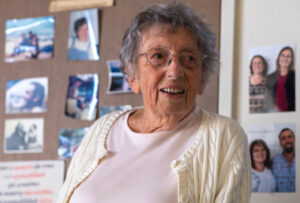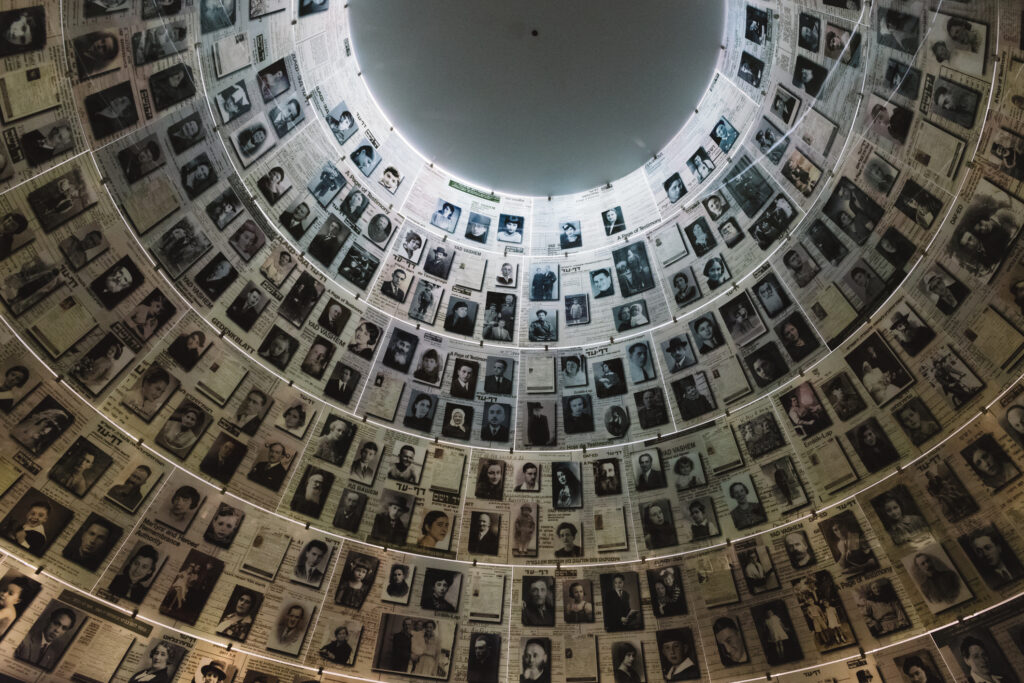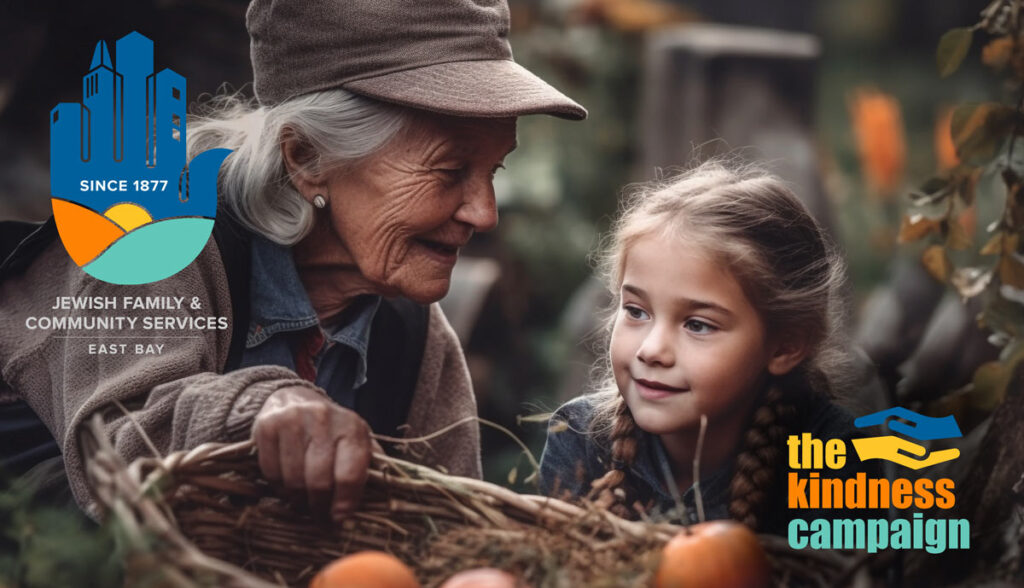My Journey
By Herta Weinstein

Winter: Kindertransport Feb 22-24, 1939
The train was full of children, one adult woman per car. We traveled all day and part of the next night up the long Rhine Valley to the Dutch border. The shades were up during the day when we passed through the countryside. There were long stretches of fields and forests. But as we passed through towns, the shades were down. I wrote my pre-addressed postcard, which I still have, postmarked from Frankfurt, and ate my packed lunch. I was very bored. The other children were quiet and no one cried or made trouble. But no one played or laughed either. We had all lived under the Nazis for a year and were leaving our parents.
We got to the border late at night. Guards in Nazi uniforms and big boots came onto the train, asked us if we had any money (of course we didn’t), dumped out a couple of random children’s suitcases (not mine), found nothing, and went on. No one said a word. When the train went on, I remember feeling a great sudden relief, a sudden lightness. We were OUT!
We got to the next stop very soon. We were in Holland! A brightly lit station, the shades were up, the windows open, the platform full of smiling Dutch women in heavy shawls, handing up hot chocolate and pastries to the children. Incredible delight! We were shouting and laughing.
The next memory I have is being in a ship’s cabin, very seasick, crossing the channel. It was a rough crossing, as a channel crossing often is. I remember promising myself I would never, never cross the channel by ship again, and I never have.
But then we were in England. Harwich, on the east coast. After an inspection, we got on a train to London. British trains! Amazingly luxurious compared to what we knew on the continent, and we surely were not in a luxury class car. And then we got to London. By now, it was night time. Bright lights everywhere. Most of the children disappeared quite quickly.
I went to a hostel, but I did not know that at the time and feared I had been forgotten or had waited in the wrong place. But no, a nice young man appeared. He had a card with my name. He was the chauffeur of an elegant car who drove me through the brightly-lit London streets to an equally elegant lady’s house. It was like being in a fairy tale.
But there was an anxious confusion. I had a postcard which we were no doubt given on the train to send home. But it was from the Hebrew Shelter, London. This was no shelter. Although elegant, this was not the right fairy tale ending. I didn’t speak English well enough to clarify anything. On the other hand, this was London, not Nazi Germany. I was not afraid. I slept in the luxurious bed.
The next morning, I was taken back to the train station and put on the correct train to Glasgow. Another lovely train, this time in a compartment with another Transport child and two kind English ladies with whom we could barely communicate. They bought us our first elaborate English tea. I knew enough to say “thank you” in English. Sometime that afternoon, the train arrived in the Glasgow station where, to my amazed delight, I was met by my two aunts whom I had known all my life.
Summer 1939
My parents had just arrived in Glasgow in June after their odyssey on the St Louis. For the first time since about August 1938, we were all together again. We were all safe, never mind the war. My aunt and uncle, and my parents, another aunt, and myself.
We were in a rather large flat, which was also shared with another couple, young socialists from Vienna. Seven adults and one child. We shared a bathroom and kitchen. It did not seem crowded to me–it seemed comfortable, almost luxurious. It had running hot water which none of us had had in Vienna. It also had mice, which apparently every building in Glasgow had, much to the distress of my two aunts. I thought it was rather funny. My job was to polish my uncle’s shoes. Six pairs a week. No doubt a pampered man. But he was the breadwinner for five people.
I was happy that summer, in spite of the gloomy Scotland weather. We were all safe. I had my father and my uncle, the two people in the world I loved the most. My mother was under control because of the other adults around. Besides, in all fairness, the year under the Nazis had changed her a good deal.
On Sundays, we took trips into the nearby countryside which included the Atlantic Coast. This was very interesting to people from landlocked Vienna, even if it was cold and damp in the summer.
In retrospect, it sounds rather idyllic, but it wasn’t! The shadow of war was there. My father was not allowed to work. My parents had been allowed into the country on an emergency basis from the SS St. Louis, not on a regular Visa, which would have been impossible to obtain at the time. We were all dependent on my uncle. On the other hand, we were waiting for the quota number so we could get us a visa to the US. A shining hope, but we didn’t know when that might happen.
The war started at the same time as I started school. On September 1, 1939, schoolchildren were allowed to be evacuated from the city to the countryside. Glasgow is the second largest city in Britain, an important seaport, and an obvious target for bombing. I don’t remember if I was asked; more likely, I was told that I would be leaving. I was going to be sent to the countryside for “safety”—to a much more unfamiliar world than Glasgow.
Turriff: October-November 1939
Turriff is a very small town north of Aberdeen, Scotland. I don’t remember how I got there, but it must have been by train with at least one transfer. The Baxters were prosperous farmers with cows, a barn with milking machines, in beautiful rolling land with many sheep and quite a few farmhands.
Mr Baxter was a tall, ruddy, pleasant Scotsman. His wife was a quiet woman about whom I remember almost nothing. They had a daughter, perhaps a bit younger than I was, whose name I don’t remember. We could hardly communicate–we were both too shy and culturally utterly unrelated, and there was no one to help us bridge the gap. We did not become friends. She and I slept in what I suppose was a double bed with her grandmother, who smelled bad. I had never shared a bed with anyone before. I was there for what must have been about six weeks. I have no memory of what, if anything, was done about bathing, but there certainly was indoor plumbing, probably with hot water; anything else would be more memorable. British plumbing in rural Scotland was far ahead of what existed in a middle class city building in cosmopolitan Vienna.
The family ate breakfast and dinner together. It was my introduction to porridge, but also to bacon and fried ham. The novel experience was that nobody paid much attention to what or how much I ate. The lack of family interest in the details of the food was as remarkable to me as the food itself.
I had never seen a cow up close before, certainly not a bull, and especially not a
bull mounting a cow. That was, indeed, one of the more memorable sights of my farm stay. Less dramatic but also astonishing was seeing sheep dipped, feet tied, into bright orange colored dip; I suppose against some infestation. Seeing all this was part of the tour to see the farm by Mr. Baxter, who was really very kind. But it was a world more foreign to me than anything I had experienced before.
One day I was sent around to the bunkhouse where the farm hands lived, to tell them their dinner was ready. I may have stood in the doorway a moment peering inside where it was rather dark. One of them lifted his blankets and invited me in. I turned and bolted from the door. They laughed behind me. I never told anyone, neither there nor to my family. Somehow I managed not to get sent to the bunkhouse again.
The family had a cat with kittens. I loved kittens, never having been allowed to have pets, though once we had a canary in Vienna. But you can’t hold and pet a canary. One day I picked up a kitten, not knowing about kittens that have not been used to people. It bit me in the thumbnail, hard. It didn’t grow out until long after we were settled in California. It was my souvenir of Scotland!
Soon I was sent to school in Turriff. I remember very little about it except that all the girls were taller than I and I understood almost not a word of what anybody said. Here again, everyone was kind but had not a clue how to help.
I don’t remember being particularly unhappy. Lonely yes, but not afraid. No one knew how long this would last, but I had better get used to it. I was safe and my parents were safe. We exchanged some letters. I don’t remember having a telephone.
But one day word did come. It must have been early October 1939, by phone or some other way. Come back to Glasgow right away. The American quota number had just come up and we were to leave soon. We crossed the Atlantic and arrived in New York on November 1, 1939.
New York: November 1939
A sublet of three rooms in a rather poor apartment on West 110th Street in New York, complete with bed bugs and cockroaches. My mother was horrified. I mainly did not like being bitten by the bed bugs at night. I started in another new school. My father got a Christmas job wrapping packages at Saks Fifth Avenue at night. My mother and I waited anxiously each night as he made his way home through freezing New York.
After a very few weeks, early one Sunday morning, I developed a bad bellyache. My father, though he was no doctor, correctly figured out I had appendicitis. No buses across Central Park on a Sunday morning. Could I walk? I thought I could, and I did, to Mt. Sinai Hospital, where I was duly diagnosed and operated on for appendicitis.
After surgery, I had to stay in the children’s ward for ten days. That was my first real contact with American culture. One of the children had a much-envied radio which he played loudly every day and that’s where I met Superman and the Green Hornet.
Then followed a four-week stay in a Jewish children’s convalescent home, about an hour’s ride outside of New York. This turned out to be the last of the 1939 separations from my parents. While I was there, the children had to put on a Christmas program, for which I, bizarrely, sang Holy Night in German. Although it was my first experience of group living, it was far less estranging than Scotland had been.
In January 1940 we left, together, for San Francisco.








